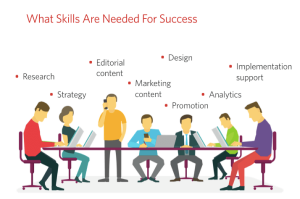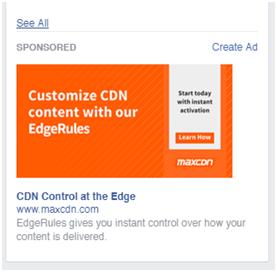I was once heir to a chopped-liver dynasty. Really. When you get to the inevitable part of any team development activity where you are asked to go around the room and tell everyone something about you they may not already know, I say that. And there’s a good story behind it with some excellent career lessons. I’ll come back to that.
How I Got Here
When I turned 50, I had a good job with a large, fairly stable company. My career, up to that point, had been a series of similar jobs. Most were in marketing or related areas, and there was what HR folks call a good progression of responsibilities. I was not the most successful 50-year-old in the business, but I was happy with my progress to that point.
I also knew on the day I turned 50 that everything was about to change. I learned a lot along the way, about both my chosen profession and how I am happiest contributing. I also learned a bit about myself (see this piece I wrote for Psychology Today). All this led me to the conclusion that I did not want to go where my trajectory was taking me.
This, I soon discovered, is the hardest kind of change to make for oneself. It required not only stepping out of the traditional roles and work to which I’d become accustomed, but also two of the hardest personal projects I’ve undertaken: defining what the new trajectory of a career after 50 would look like and redirecting nearly 30 years of career momentum.
Defining a new trajectory sounds pretty simple: take those things you like to do and figure out how to get people to pay you to do them. But, most career coaches will tell you what I also learned: it’s much more than that. You have to find the way in which you like to contribute, then figure out what kind of work that means you have to do—which might also mean finding or creating work you have never seen—then figuring out how to get people to pay you to do that work. Plus, as a marketer, I had to explore in greater depth what value I would be bringing to the market and whom my customer would be.
I landed on a goal of building my own business: consulting, writing, and maybe speaking. That was just the way in which I wanted to contribute. If you’ve read my earlier posts, you know I talk largely about business relationships, specifically those between a company and its customers. This is the path I have chosen. After all those years in marketing—the past decade or so in businesses where customer relationships were the drivers of success—I realized this was not only something about which I cared deeply but also something that was incredibly valuable to many companies and where there was a substantial market needing help.
After four years of trying to make this a success, I have found a few things about building a career after 50:
- It’s never linear. I have been lucky enough to have some interesting consulting engagements. Some of those are exactly what I expected. Others, not so much. The theme of customer relationships did run through everything I’ve done so far but hardly in the way I expected, in many cases.
- It’s hard. There is such strong interest in this area and so many companies in need, I figured this would be just a matter of finding the right buyer for my services—and I’d be too busy for my own good. Not exactly. After three years of struggling with the fact that the industry didn’t even have the right buyer (which changed, thankfully), I now find myself doing what every one of you who runs a consulting firm is doing: selling hard and often and in ways I never expected.
- It’s discouraging. I’m 54 now and am not the wildly successful, world-famous, notable consultant and author I expected to be. The reality does not yet match, but the expectation remains.
One way I keep myself going is to remember my own inspiration.
The Chopped-Liver Dynasty
I’ve studied business and marketing extensively and worked in the field for more than 30 years. Yet I attribute much of what I know, including my instincts, to my grandparents, who started and ran their own successful business.
They were immigrants from Eastern Europe. They came to the United States with very little. They worked and saved and got help from family and, eventually, started a luncheonette (today, we’d call it a diner). My grandmother made chopped liver from her own recipe for sandwiches (in the New York Jewish community of the 1930s to 1950s, this was very popular). Eventually, people started asking her to send them home with some extra chopped liver for their dinner, and she started selling it. It became popular enough that my grandparents eventually closed the luncheonette and opened a business making and selling chopped liver. By the early 1970s it had become the largest selling brand of kosher frozen chopped liver in the United States.
There were lots of lessons I learned as a kid and young adult listening to my grandmother telling me how they got the business started, how they sold the chopped liver, how they created distribution and sales channels, and so much more.
I’ve always admired the story, and by the time I was a teenager, I knew that my goal was —and still it today—to grow up to be just like my grandmother.
Am I There Yet?
A few weeks ago, I was considering how to adjust my own path to make my goal of consulting, writing, and speaking work better for me. I was starting to think about how I am getting older, how businesses are less and less likely to seek out older people to meet their needs (see this rather discouraging piece from CNN), and how I was starting to feel more and more rushed to reach some as-yet-undefined milestone of success for my own efforts.
Then I thought about my grandparents’ business and what I could learn from it, and I did some math. I realized my grandmother was in her mid-50s when they launched the chopped-liver business (my grandfather was about 60). When I was old enough to be aware of their success, it felt to me like they had been successful forever, but it had only been 10 or 15 years.
Here I am in my mid-50s, relaunching my own business effort, a career after 50. Suddenly, I know it’s not too late. I know this is a good time to be in my own business. I know I have just learned one more thing from my grandparents: it’s not too late to get started. But you do have to get started.
I’ll keep you posted on where this takes me. I hope my story will help if you’re feeling a bit washed up and unsure of your next step. Just go. And in fewer years than you imagine, you’ll have stories to tell and lessons to pass on, and everyone will just assume you’ve always been successful. At least I hope it works that way for me, too.
(238)
Report Post






